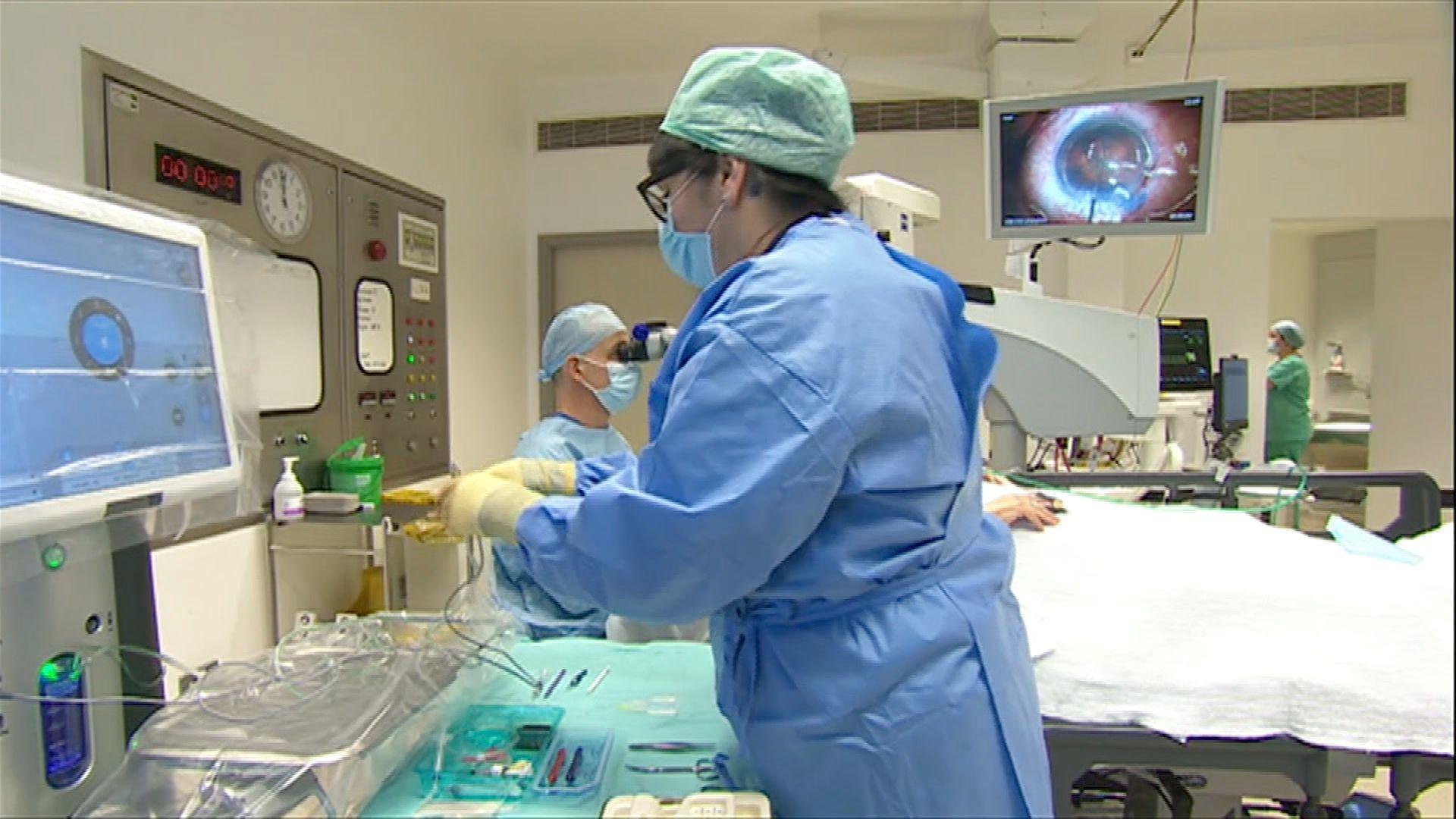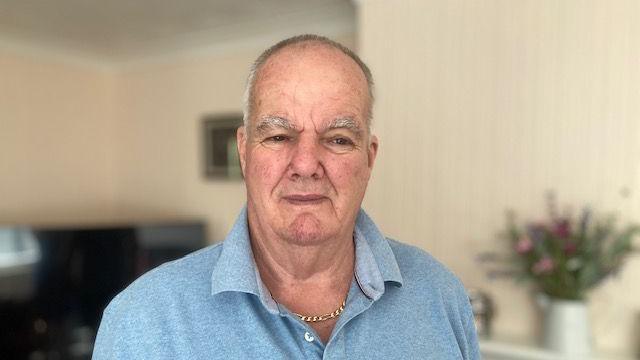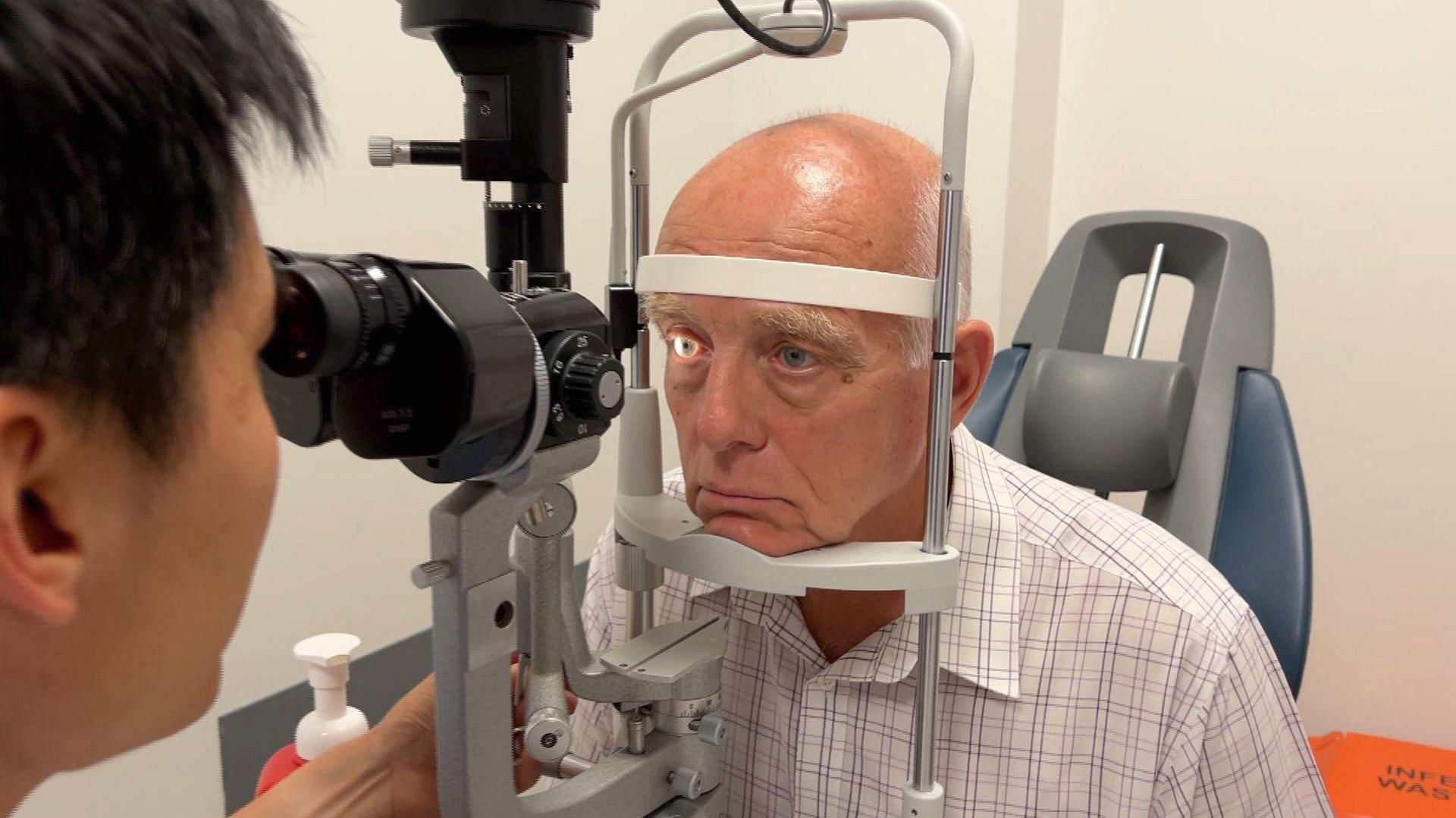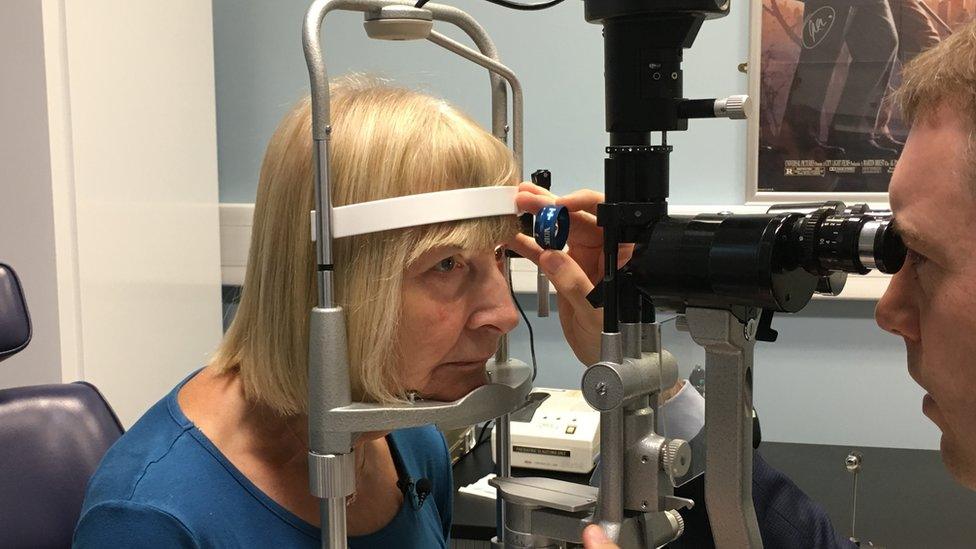AI assistant eases NHS pressure in cataract care

An AI telephone assistant saves staff time by calling patients for a follow-up check after cataract surgery.
- Published
Artificial intelligence (AI) is providing a cheaper, faster and more efficient service for cataract patients while easing pressure on NHS staff, according to researchers.
An automated voice system developed in Oxford, called Dora, phones patients to ask questions, interprets their answers and identifies patients who need to be seen by a clinician.
A study, published in The Lancet’s eClinicalMedicine, external journal in July, found Dora's decisions strongly agreed with the supervising ophthalmologist.
The AI-powered tool is currently being used by nine hospital trusts, mainly in the south of England.
Prioritising patients
More than 200 patients who had recently undergone cataract surgery took part in the study.
They received a call from Dora to conduct a follow-up assessment three weeks after their operation.
Dr Kanmin Xue, honorary consultant ophthalmologist and co-principal investigator at Oxford University Hospitals NHS Trust, said: "The Dora system is able to call patients autonomously by telephone and conduct a conversation that gathers the key information needed to determine whether a patient is recovering well or requires further medical assessment.
"It was successful in identifying and prioritising those individuals who needed additional clinical input."
Cataract surgery remains the most frequently performed surgical procedure in the UK, with almost half a million operations performed every year, according to the Royal College of Ophthalmologists.
The routine procedure to treat blurry vision involves replacing the eye’s natural lens with an artificial one.
Thousands travelling miles for eye surgery - trust
- Published21 February 2024
The NHS hidden waiting lists terrifying patients
- Published19 February 2024
Patients going private for cataract and hip ops
- Published9 March 2022
Dr Xue said the volume of patients requiring the treatment meant it was not always possible to provide a follow-up appointment with a clinician but that using Dora had significantly freed up staff's time.
He said over the past year, Dora had made more than 12,000 calls to patients in the South, each lasting about eight minutes.
"If you think about it, it's like having two nurses calling all day and doing nothing else," he said.
"That is a substantial amount of time they can now invest in delivering face-to-face care in other clinical activities."
Frimley Health NHS Trust introduced the Dora system in December 2022 and estimates it has freed up more than 530 hours of nursing time.
The trust carries out 5,000 procedures a year and a backlog created by the covid pandemic meant patient call times had slipped from within two weeks to 10 weeks.
A month after launching Dora, the surgery-to-call time had fallen from 10 to two weeks, with the backlog of calls cleared, it said.

Ron Hart is having cataracts in both eyes removed
Ron Hart, 73, from Bicester, Oxfordshire, had the cataract in his right eye removed at Cherwell Hospital, in Banbury.
He is one of a growing number of patients to have cataract surgery performed privately but paid for by the NHS to help tackle waiting lists.
Dora called Mr Hart before his operation to check he was feeling well and that he wanted to go ahead - and then again after his surgery to make sure he was not suffering eye pain or discomfort.
Like two-thirds of patients using Dora, Mr Hart did not require an in-person appointment because he has not experienced any complications.
He said: "It's very convenient, there's no travelling or parking fees, you don't have to go and see someone face-to-face, it's a great idea."

AI is helping to free up staff to see other patients
Researchers evaluated patient feedback and found most participants were happy with the AI follow-up, although some voiced concern over lack of a "human element" in cases with complications.
The study also found there was a cost saving of around £35 per patient compared to standard care.
Dora's developer, Oxford University spin-out company Ufonia, said it was expanding the technology to assist with chronic conditions, such as osteoporosis.
Dr Ernest Lim, Ufonia's science director, said generative AI was giving patients more ways to access care.
"From supporting back office or administrative tasks - things like writing clinical letters or taking consultation notes - to what Dora's trying to do, which is directly speaking to patients and engaging with them," he said.
The nine NHS Trusts using Dora are:
Buckinghamshire Healthcare NHS Trust
Oxford University Hospitals NHS Foundation Trust
Portsmouth Hospitals University NHS Trust
Chelsea and Westminster Hospital NHS Foundation Trust
Royal Berkshire NHS Foundation Trust
Frimley Health NHS Foundation Trust
University Hospitals of Leicester NHS Trust
University Hospitals Bristol and Weston NHS Foundation Trust
Follow BBC South on Facebook, external, X (Twitter), external, or Instagram, external. Send your story ideas to south.newsonline@bbc.co.uk, external or via WhatsApp on 0808 100 2240, external.
- Published13 August 2018
